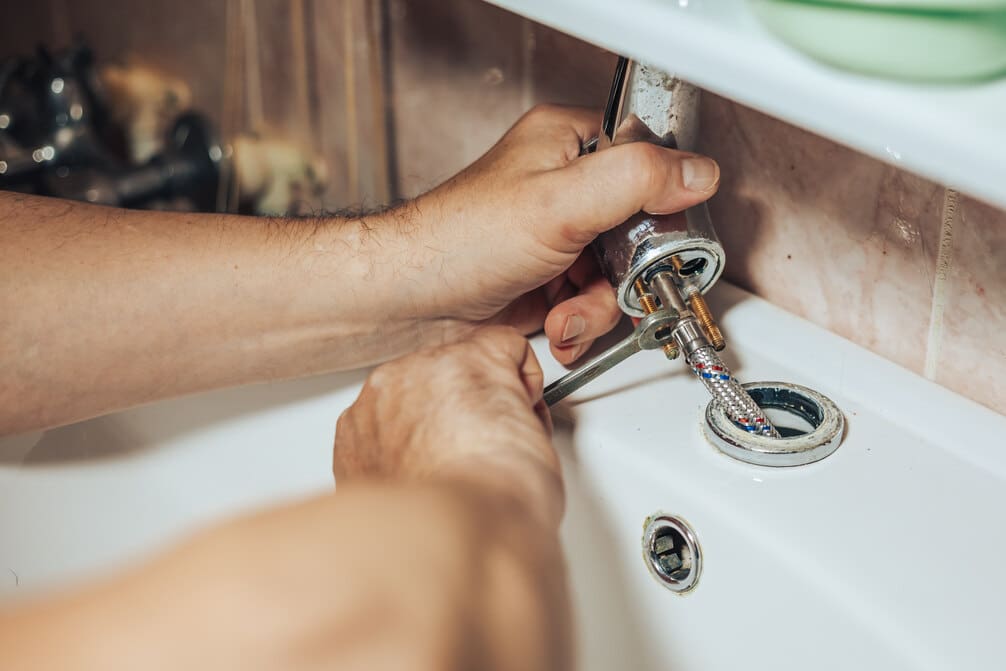When you’re deciding on a tip, weighing the task’s complexity and the super’s responsiveness is pivotal. But, how do you strike the perfect balance between generosity and practicality? As you think about the appropriate amount to tip your super for repairs, from the $5 gratitude for minor fixes to the more substantial $40 for extensive work, consider this: the unwritten rules of tipping are nuanced and vary widely. Let’s explore what factors should guide your decision, ensuring you’re both fair and thoughtful in your approach.
Key Takeaways
- Tipping depends on repair complexity, ranging from $5 to $50 for holiday tips.
- Evaluate the effort, urgency, and material costs to decide the tip amount.
- Recognize exceptional service with a tip to maintain a positive relationship.
- Fair compensation through tips reflects appreciation for the super’s hard work and skills.
Is Tipping a Super for Repairs Expected?
Is it expected to tip your super for repairs? In short, yes, but let’s delve into the nuances. When your super goes above and beyond to ensure your living space is in tip-top shape, showing your appreciation through a tip has become a common practice. This isn’t just about being courteous; it’s about acknowledging the extra effort and skill involved in handling repairs that fall outside the realm of regular maintenance.
Now, you might wonder if every repair warrants a tip. The expectation varies. For routine fixes that are part of the super’s job description, a small gesture of thanks might suffice. However, when the task is complex or requires a significant amount of time and expertise, tipping becomes more than just a nice gesture—it’s a way to express genuine gratitude for exceptional service.
Moreover, tipping your super for repairs does more than just say ‘thank you.’ It fosters a positive relationship, one where you’re likely to see prompt responses and high-quality service continue. In essence, while not mandatory, tipping is expected when the service rendered goes beyond the basics, ensuring your home remains a comfortable and well-maintained space.
How Much to Tip a Super for Repairs?
Determining how much to tip your super for repairs can be tricky, as it often depends on the complexity and urgency of the job at hand. For something like a sink repair, you’re looking at a range of $25 to $50. This figure isn’t set in stone, though. It’s more about showing gratitude for their prompt and efficient service. Remember, the amount you tip may vary based on how complicated or immediate the repair is.
Aside from cash, there are other ways to express your appreciation. A firm handshake, a small gift, or even a 6-pack of beer can convey your thanks for a job well done. If you’re on a tight budget, around $10 per repair can also be a thoughtful gesture of gratitude.
Tipping your super isn’t just about the money; it’s a way to acknowledge their hard work and dedication. It’s a sign of respect for the time and effort they put into keeping your living space in top shape. So, when you’re deciding how much to tip for repairs, think about what their service means to you and let your gratitude guide you.
How Much to Tip a Super for Repairs During the Holidays?
During the holiday season, tipping your super for repairs can range from a modest $5 to $10 for routine tasks to a more generous $40 to $50 for extra services. This variation in tipping is a way to show appreciation for their hard work throughout the year.
When your super goes above and beyond, especially during the hustle and bustle of the holidays, recognizing their effort with a tip is a kind gesture.
Holiday tipping for repairs isn’t just about the task itself but also the timing and effort involved. If your super has to fix a leaky faucet or tackle emergency repairs while everyone else is celebrating, it’s nice to acknowledge their dedication with a tip that matches the complexity of the repair and their level of effort.
Furthermore, being generous with your tipping during the holidays can help maintain a positive relationship with your super. It ensures prompt and attentive service whenever you need it, creating a mutually beneficial rapport.
Additional Factors to Consider
When deciding how much to tip your super for repairs, you’re not just considering the amount. You also need to think about the complexity of the repair, how quickly it was needed, and the cost of materials involved. Additionally, consider the super’s effort and your history of tipping to ensure your appreciation is accurately conveyed.
Repair Complexity Level
The complexity of a repair, ranging from minor adjustments to major overhauls, directly influences how much you might tip a super. When you’re faced with a situation that requires the building staff’s expertise, the repair complexity level becomes a critical factor.
If it’s a quick fix, a smaller tip may suffice. However, for more technical repairs requiring specific skills, a higher tip reflects the effort and expertise needed. You should also consider the materials or parts involved; a repair that demands expensive or hard-to-find components justifies a more substantial tip.
Urgency and Timing
Understanding the complexity of repairs is crucial, but don’t overlook how urgency and timing also play pivotal roles in determining the appropriate tip for your super. When they address repairs promptly, especially for urgent issues, it highlights their commitment to your comfort and safety.
It’s a good practice to consider tipping more for work done outside regular hours, acknowledging the extra mile they go to ensure your home remains in top condition. Additionally, offering a holiday bonus can be a thoughtful way to show appreciation for your super’s year-round dedication, particularly during peak seasons when their workload increases.
Building a good rapport through fair tipping for timely repairs can lead to prioritized service, ensuring your urgent needs are met with swift action.
Material Costs Involved
Material costs, ranging from basic supplies to specialized equipment, significantly impact the tipping amount you might consider for your super’s repair efforts. Whether it’s a simple task like changing a light bulb or a more complex repair such as fixing leaks or replacing parts, the type of repair dictates the material costs involved. Factors like the cost of replacement parts, specialized equipment needed, and the repair’s complexity play a crucial role in these expenses.
Some repairs may even require special materials that are pricier or harder to find, further influencing the total cost of the repair job. Before starting, your super might give you an estimate of these costs, helping you gauge the financial implications. When tipping, it’s essential to consider these material costs, especially for repairs demanding significant resources or special materials.
Super’s Effort Level
Evaluating your super’s effort level in repairs, especially those demanding significant time, skill, or urgency, can guide you in deciding how much to tip.
If your resident manager showcases deep expertise in handling complex tasks that require specialized knowledge or tools, it’s a clear sign they’re investing more effort than usual. This dedication not only resolves your issue but also ensures your home’s safety and functionality.
Furthermore, when emergency repairs arise and your super responds swiftly, addressing the problem effectively and efficiently, tipping more generously can express your gratitude for their prompt action.
Acknowledging when they go above and beyond, especially under stressful circumstances, strengthens the resident-super relationship and fosters a positive living environment for everyone involved.
Previous Tipping History
When determining how much to tip your super for repairs, it’s crucial to consider their past performance, including the frequency and quality of previous maintenance efforts.
Reflect on the years of service your super has dedicated to maintaining your building. If they’ve consistently done a good job, promptly and effectively completing repairs, this deserves recognition.
Evaluate how often they’ve gone beyond the call of duty. If your super has shown exceptional expertise and professionalism, or if they’ve gone above and beyond by paying extra attention to detail or tackling tasks outside their usual responsibilities, these are significant factors.
Their past actions give insight into the value they bring, guiding you to a fair tip amount.
Frequently Asked Questions
Should I Tip My Super for Fixing Something?
Yes, you should tip your super for fixing something. It’s a way to show gratitude for their effort and time. Generally, $5 to $10 for small tasks and $40 to $50 for larger repairs works well.
Should I Tip My Superintendent?
You’re in the same boat as many when wondering if tipping your superintendent is necessary. It’s all about showing gratitude for their hard work. If they’ve gone the extra mile, consider a cash tip or small gift.
How Much Should I Tip My Super?
You’re wondering about tipping your super, right? For regular fixes, $5 to $10’s spot on. But for special tasks or during holidays, bump it to $40-$50. It’s all about valuing their hard work and dedication.
How Much Do You Tip Super NYC 2023?
Imagine tipping as planting seeds of goodwill. For NYC supers in 2023, you’re looking at $5-$10 for small tasks and $40-$50 for those big favors. It’s all about nurturing that vital relationship.









